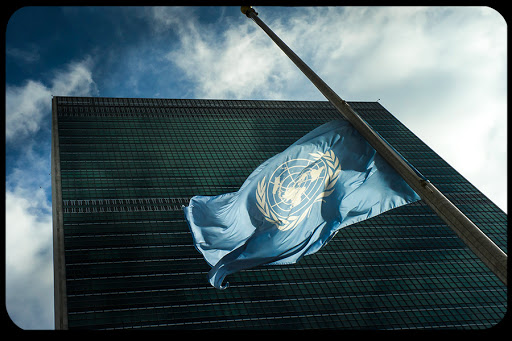Is the United Nations about to give the population control movement a major boost?
Delegations from around the globe gathered in New York this month to continue negotiations on the United Nations’ most expansive development agreement in nearly two decades. The Sustainable Development Goals (or SDGs) will guide the policy agenda for all 193 member states, replacing the Millennium Development Goals adopted in 2000.
But special interests and lobby groups at the United Nations are waging a battle over whether the Sustainable Development Goals will include abortion as a development target.
“This is the most important process touching on the abortion issue that the United Nations has seen in the last 20 years,” says Elyssa Koren, U.N. Counsel for Alliance Defending Freedom, in an interview with Aleteia. “If the pro-life community was aware of the impact that this will have on countries on the ground, there would be a lot more attention paid to it. Unfortunately, the lack of transparency during this U.N. process has kept the pro-life public in the dark.”
Diplomats met over the summer to produce an unwieldy draft document that listed 17 lofty goals. The majority of developing countries are pleased with the draft, since it includes comprehensive benchmarks for development that are appealing to poorer nations.
But there is discontent among many developing countries about the inclusion of “reproductive rights,” which is a diplomatic euphemism for abortion.
“With ‘reproductive rights’ as a target,” Koren explains, “countries will be forced to report the extent to which they ensure access to abortion in their countries. If abortion is illegal, they will be placed under even more pressure to legalize and increase access to abortion. Where laws are in place to protect life, U.N. member states will be under even more pressure to legalize abortion. Protecting human life will be recognized officially as an obstacle to development.”
On his flight back to Rome from the Philippines, Pope Francis warned against an “ideological colonization” that uses the promise of material aid to sway nations to change their attitudes and laws regarding the protection of innocent human life.
“During the [October 2014 Synod on the Family], the African bishops complained about this,” the Pope said during an in-flight press conference. “Certain loans in exchange for certain conditions.”
The inclusion of the misleading term “reproductive rights” would be a serious setback for international pro-life advocates. Previous large-scale initiatives have purposely avoided the phrase. The Millennium Development Goals were carefully constructed to avoid any reference to abortion, only referring to “reproductive health.” Then-U.S. Ambassador John Bolton specifically clarified that the term “reproductive health,” does “not create any rights and cannot be interpreted to constitute support, endorsement, or promotion of abortion.”
In 2012, pro-life delegations and lobby groups successfully excluded the term “reproductive rights” from the U.N. Conference on Sustainable Development in Rio de Janeiro, which was a precursor to setting the Sustainable Development Goals.
The Sustainable Development Goals draft, on the other hand, refers to “reproductive rights in accordance with the International Conference on Population and Development” under its goal to “attain gender equality, [and] empower women and girls everywhere.”
“No reference to ‘reproductive rights’ [that is, abortion] is appropriate in the Sustainable Development Goals,” says Koren, “These goals will have far-reaching implications, affecting the way international development funding is distributed at the highest levels. The entire United Nations system, the International Monetary Fund, and the World Bank will all be influenced by these goals.”
Despite the uphill battle for pro-life advocates, Koren remains undeterred.
“The best outcome the pro-life community can hope for during the negotiations ahead is a streamlined text hearkening back to the agreed language of the Rio conference, which did not mention abortion in any way,” Koren explains. “As serious as this situation is, however, it will in no way create an international right to abortion. International law will still be on the side of life, even if the drafted abortion language is not removed.”
The United Nations will meet once monthly until mid-summer for further negotiations. These meetings will determine whether the draft proposal will be accepted, modified, or whether an entirely new proposal will be introduced. Whatever happens, international pro-life advocates are ready.
Josh Craddock writes from New York.

